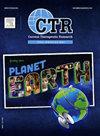探索在巴勒斯坦社区药房实践中使用移动医疗应用程序
IF 1.5
Q3 MEDICINE, RESEARCH & EXPERIMENTAL
Current Therapeutic Research-clinical and Experimental
Pub Date : 2025-01-01
DOI:10.1016/j.curtheres.2025.100782
引用次数: 0
摘要
移动医疗应用程序已成为现代医疗保健的重要工具,使专业人员能够访问实时药物信息、临床指南和患者管理资源。虽然全球都在接受这些应用程序,但在巴勒斯坦等资源有限的环境中采用这些应用程序的研究仍然不足,特别是在社区药剂师中,他们对医疗保健系统至关重要。目的本研究探讨巴勒斯坦社区药剂师对移动医疗应用程序的看法、认识和面临的挑战。它的目的是评估可行性整合这些工具到他们的实践,以提高药学服务和患者的结果。方法于2023年对巴勒斯坦社区药师进行横断面在线调查。通过社交媒体分发了一份自我管理的电子问卷,目标是注册药剂师。数据是通过结构化的、有效的问卷调查收集的,包括人口统计数据、应用使用模式、感知收益和障碍。采用SPSS®软件进行描述性和推断性分析,p值≤0.05认为有统计学意义。结果共纳入400名社区药师,以女性为主,占65.8%。药剂师经常使用信息资源来验证药物相互作用(89%)和剂量(98%),并将快速获得可靠信息作为主要优势。障碍包括时间限制(92.3%)和对患者信任的担忧(77.8%)。统计数据(如性别、经验年限)与应用有用性或信任度之间没有显著关联。强正相关(P <;社区药剂师对移动医疗应用程序的支持与他们对应用程序可靠性的感知之间存在0.001)。这表明,认为移动应用程序可靠的药剂师更有可能在实践中支持它们的使用。结论巴勒斯坦社区药师app使用受限影响用药安全、患者信任和护理质量。采用移动工具可以提高效率,减少错误,并使药房实践与现代标准保持一致,突出了对未来研究的需求。本文章由计算机程序翻译,如有差异,请以英文原文为准。
Exploring the Use of Mobile Health Applications in Palestinian Community Pharmacy Practice
Background
Mobile health applications have become essential tools in modern healthcare, enabling professionals to access real-time drug information, clinical guidelines, and patient management resources. While globally embraced, the adoption of these apps in resource-limited settings like Palestine remains under-researched, particularly among community pharmacists, who are pivotal to the healthcare system.
Aims
This study explores the perceptions, awareness, and challenges faced by Palestinian community pharmacists regarding mobile health applications. It aims to assess the feasibility of integrating these tools into their practice to improve pharmaceutical care and patient outcomes.
Methods
A cross-sectional online survey was conducted in 2023 among community pharmacists in Palestine. A self-administered electronic questionnaire was distributed via social media, targeting registered pharmacists. Data were collected using a structured, validated questionnaire addressing demographics, app usage patterns, perceived benefits, and barriers. Descriptive and inferential analyses were performed using SPSS® software, with P-values ≤0.05 considered statistically significant.
Results
The study included 400 community pharmacists, predominantly female (65.8%). Pharmacists frequently used information resources for verifying drug interactions (89%) and dosages (98%), citing quick access to reliable information as a major advantage. Barriers included time constraints (92.3%) and concerns about patient trust (77.8%). No significant associations were found between demographics (e.g., gender, years of experience) and perceptions of app usefulness or trust. A strong positive correlation (P < 0.001) was observed between community pharmacists’ support for mobile health applications and their perception of the applications’ reliability. This indicates that pharmacists who perceive mobile apps as reliable are more likely to support their use in practice.
Conclusion
Limited app use among Palestinian community pharmacists impacts medication safety, patient trust, and care quality. Adopting mobile tools can improve efficiency, reduce errors, and align pharmacy practice with modern standards, highlighting the need for future research.
求助全文
通过发布文献求助,成功后即可免费获取论文全文。
去求助
来源期刊
CiteScore
3.50
自引率
0.00%
发文量
31
审稿时长
3 months
期刊介绍:
We also encourage the submission of manuscripts presenting preclinical and very preliminary research that may stimulate further investigation of potentially relevant findings, as well as in-depth review articles on specific therapies or disease states, and applied health delivery or pharmacoeconomics.
CTR encourages and supports the submission of manuscripts describing:
• Interventions designed to understand or improve human health, disease treatment or disease prevention;
• Studies that focus on problems that are uncommon in resource-rich countries;
• Research that is "under-published" because of limited access to monetary resources such as English language support and Open Access fees (CTR offers deeply discounted English language editing);
• Republication of articles previously published in non-English journals (eg, evidence-based guidelines) which could be useful if translated into English;
• Preclinical and clinical product development studies that are not pursued for further investigation based upon early phase results.

 求助内容:
求助内容: 应助结果提醒方式:
应助结果提醒方式:


